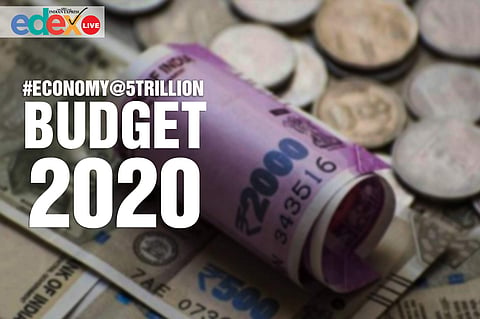

Realising the huge demand for medical teachers, caregivers, nurses and paramedical staff abroad, the government proposes to start a new bridge course to train young people in these fields. The Union Finance Minister Nirmala Sitharaman asked the Ministry of Health and the Ministry of Skill Development to work along with professional bodies to design the course.
"There is a huge demand for medical teachers, caregivers, nurses and paramedical staff abroad. However, many times, their skill sets don't match," said Sitharaman. "Hence we propose a special bridge course especially be designed by the ministries of health, skill development and professional bodies. The language requirements of various countries should also be kept in mind," she said.
Last year, medical students across the country had protested against the National Medical Commission Bill which proposed the introduction of a bridge course, to train physiotherapists, nurses, AYUSH doctors and mid-level practitioners to train them to treat the patients in Public Health Centres. The doctors and medical students had then questioned it. One of them then told us, "How can someone be a doctor in six months? By doing this, the government is putting the rural poor's health at stake."
Finance Minister Nirmala Sitharaman kicked off the Union Budget Session on February 1, 2020, at 11 am.
This budget is Prime Minister Narendra Modi’s second opportunity in seven months to refresh policy priorities to support an economy on a downward spiral. The Economic Survey that was released on January 31, a day before, projected India's economic growth at 6 per cent to 6.5 per cent in the next financial year starting April 1, saying growth has bottomed out. The growth in 2020-21 compares to a projected 5 per cent expansion in 2019-20.
Weak global growth impacting India, as well as investment slowdown due to financial sector issues, had led to growth dropping to a decade low in current fiscal, said the survey, adding 5 per cent growth projected for 2019-20 is the lowest it could fall for now.
The survey that sets the premise of the Union Budget, said that along with efforts for generating additional employment, special focus has been on improving quality of jobs and formalisation of the economy. The share of regular wage or salaried employees has increased by 5 percentage points from 18 per cent in 2011-12 to 23 per cent in 2017-18. In absolute terms, there was a significant jump of around 2.62 crore new jobs with 1.21 crore in rural areas and 1.39 crore in urban areas in this category.
The survey also introduced Thalinomics to Indians — the affordability of Thalis vis-à-vis a day’s pay of a worker, which has improved over time, indicating improved welfare of the common person. The survey stated that the affordability of vegetarian Thalis improved 29 per cent from 2006-07 to 2019-20 while that for non-vegetarian Thalis by 18 per cent.
